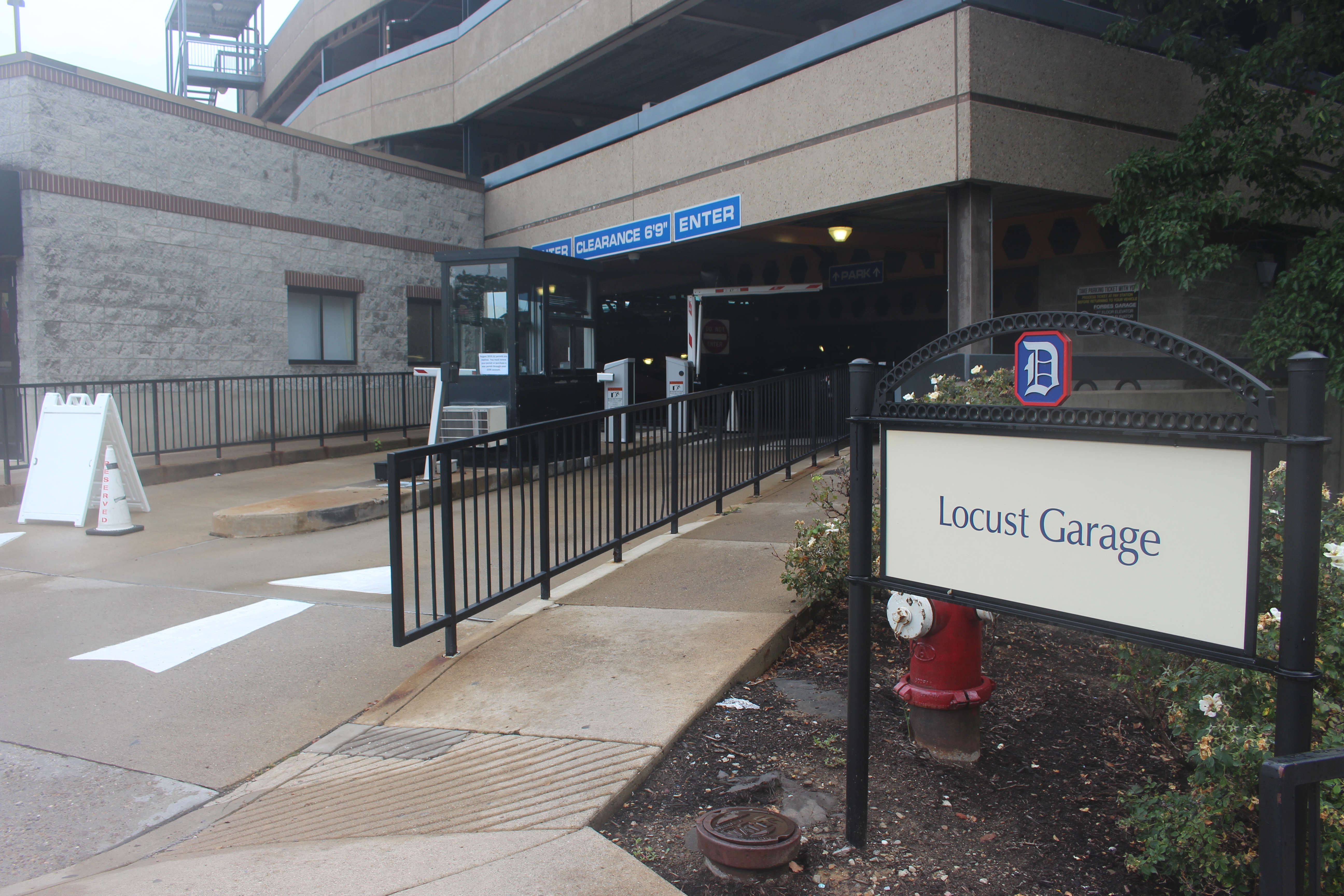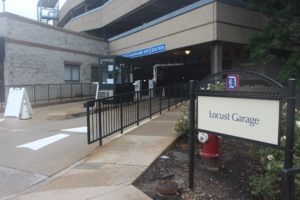
Students can purchase parking permits allowing them to park either in the garages on campus or in designated parking spots on campus roads.

Students can purchase parking permits allowing them to park either in the garages on campus or in designated parking spots on campus roads.
Raymond Arke | Editor-in-chief
08/23/18
Just as students return to campus every year, so too do student complaints over on-campus parking. With some permits costing more than $1,000, students are frustrated.
There are three parking options: a garage pass, a surface pass and a Brottier garage pass, according to the 2018-19 Student Permit Options page on the Duquesne Online Resources and Information site. A resident annual garage pass costs $1,243, an annual surface parking pass costs $1,050 and an annual Brottier parking pass costs $1,581. Passes are also available for just the academic year or just a semester. A resident academic garage pass costs $804, an academic surface pass is $797 and an academic Brottier pass is $1,022. A resident semester garage pass is $452, a resident semester surface pass is $440 and the semester Brottier pass costs $571.
There is also the same three options for commuter students at slightly reduced costs.
Scott Richards, assistant vice principal for auxiliary services at Duquesne, said there are 2,800 garage and surface parking spots to be shared among students, faculty and staff.
Breanne Koelliker is a fourth year speech-language pathology major who lives in the South Side and parks on campus five to six days a week. She had to spend more than $1,000 on a pass.
“I understand that parking and real estate in the city is expensive and limited, but I do not believe that this much of a financial burden should be placed on students who already pay so much for campus accommodations and facility management,” she said.
Koelliker would like to have other options to get to campus, but describes the parking permit as a “necessity” because of on-campus obligations.
“I have class every day and consistently stay on campus studying/doing work past the hours of operation of the [South Side] shuttle bus,” she said. “I also find parking on campus to be a safety aide; living in the South Side, I would much rather drive directly from campus to my house than be dropped off by the shuttle and have to walk home alone at night.”
Jaime Crow, a junior multiplatform journalism and English double major, agrees with Koelliker about the price. Crow is also a staff writer for The Duke.
“I think the pass is overpriced, but I can understand why it is,” she said. “I get that the parking garage is also a functioning city parking garage, especially for the Penguins games and concerts at PPG Paints, and that they need to make money, but it’s a little outrageous to have to spend $800 on a pass for the academic year.”
Gabriella Spahr is a senior health sciences major. She is currently weighing which parking permit to purchase.
“I think the cost is a bit much. I’m not going to lie, I’m a bit nervous to buy a parking pass, especially because I’m not sure which pass to buy: surface or garage,” she said. “I’ve heard of my friends complaining about both passes not having any spots and then being late or not showing up to class because they can’t find parking, and I really don’t want to be in that situation, especially my senior year.”
Spahr wished that there were more parking options available.
“It isn’t fair to gamble on a parking spot that you’re not even guaranteed and can’t get to class some days,” Spahr said. “I’ve considered buying passes off campus in other garages such as Mellon Garage, but I do understand that it does get crowded on campus. I just wish it was a bit more reassuring to know that I could find a parking spot, given the fact that you pay for it every day.”
Richards said there is nothing unusual with the rate increase.
“The university always strives to keep rate changes and expenses to a minimum, and this year’s increase is consistent with previous years,” he said.
He explained how the rates are set.
“Parking rates are determined by the university’s annual budget process, which takes into account various expenses needed to operate and maintain the Forbes Avenue and Locust Garages, the five parking lots and surface/street parking across campus,” Richards said.


